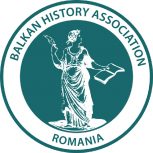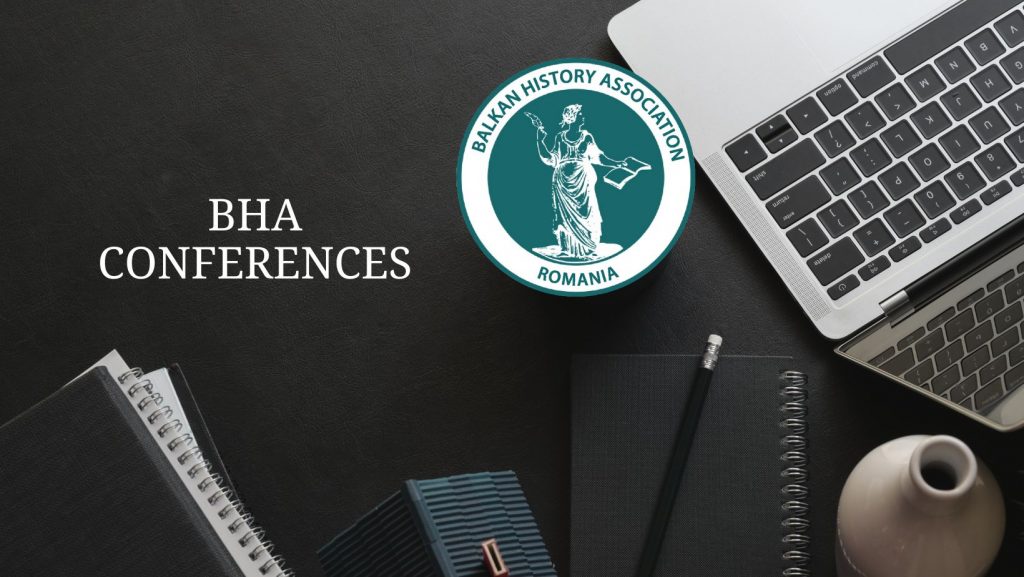On 29.11-1.12, the Department of Balkan, Slavic and Oriental Studies, University of Macedonia, Thessaloniki, the Department of History, Faculty of Law and History, South-West University “Neofit Rilski”, Blagoevgrad, the History Laboratory of the Department of Balkan, Slavic and Oriental Studies, and the Balkan History Association organized the international conference “Common past—divided memories”. The conference was held in person and streamed on Zoom. Our association was represented by its President, Mihai Dragnea, who was part of the Organizing Committee, its Vice-President, Dorina Dragnea, and several members such as Wojciech Szczepański (Commission of the Balkan Studies, Polish Academy of Sciences, Poznań branch), Galina Yakova (Bulgarian Air Force Academy), Alexandros Solomos Balatsoukas (University of Giessen), and Iulia-Alexandra Oprea (Târgu Mureș).
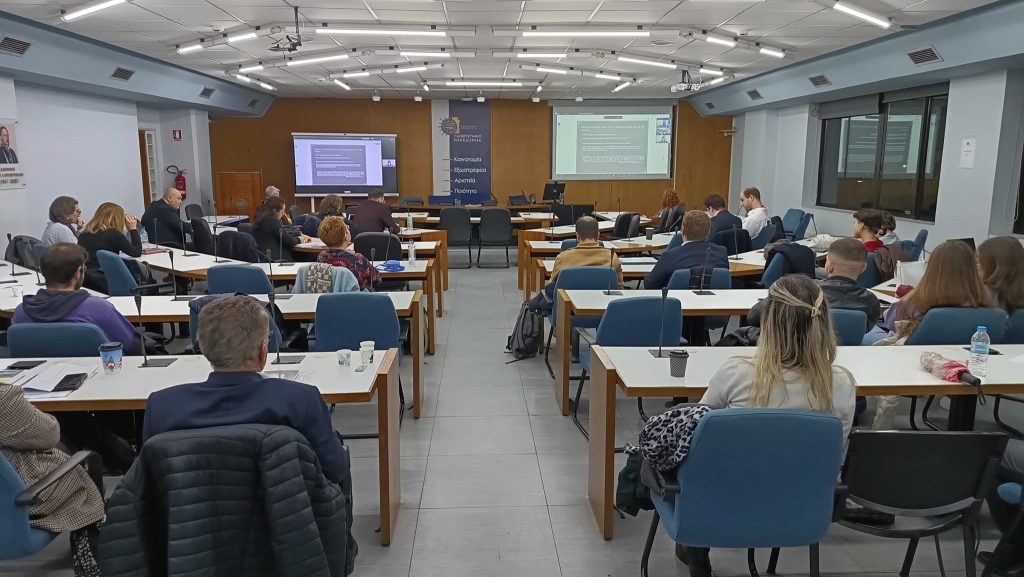

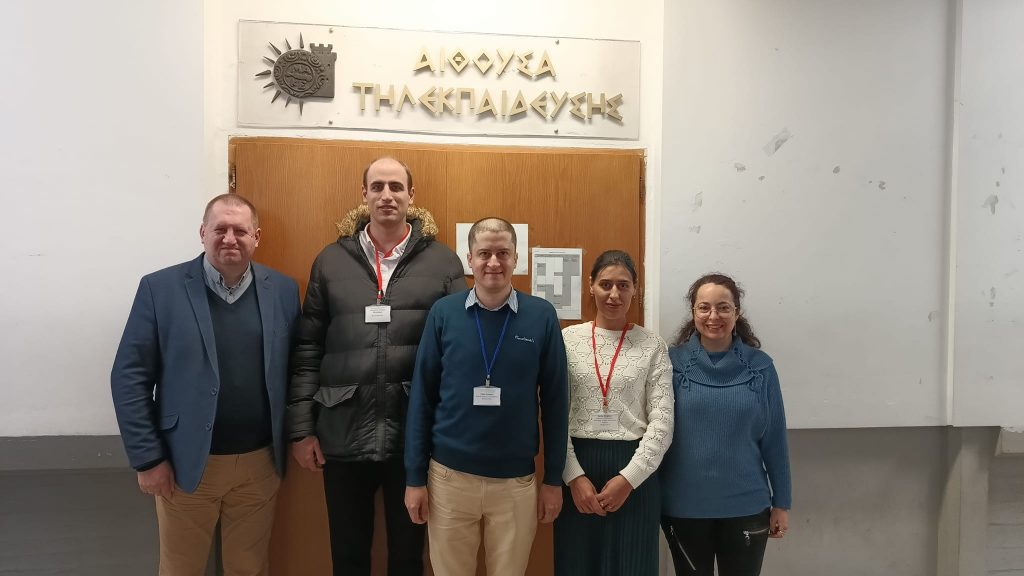
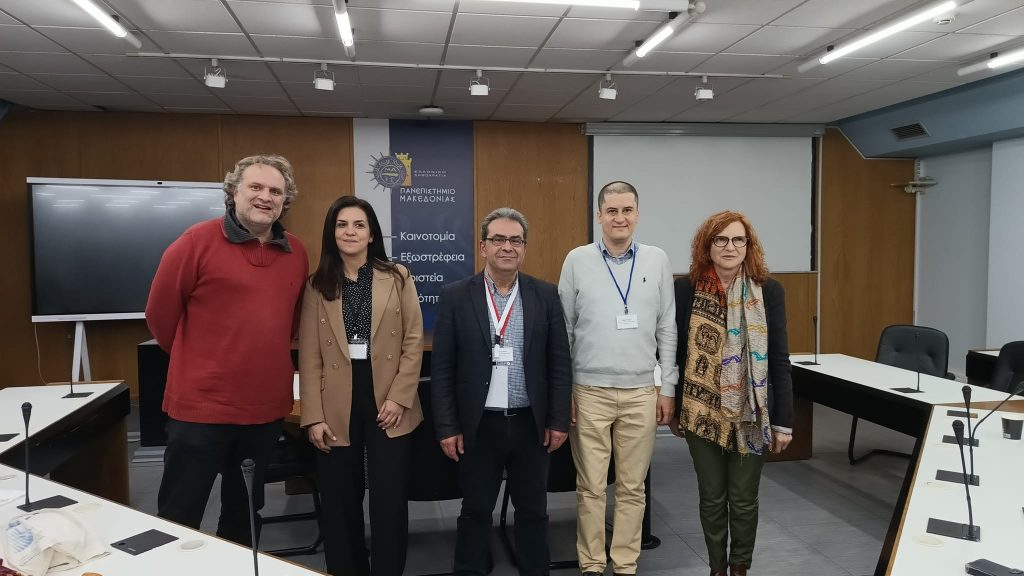
Aims and subjects
Undoubtedly the common patterns of Modern and Contemporary History of Eastern and Southeastern Europe were formed by the contradictions of the legacy of the Enlightenment, whose ideas of the universal character of human spirit and historical progress inspired cultural emancipation, national revivals, and political revolutions, the birth of modernity and nationalism, and social and technological progress, but these ended in the world wars that brought about the fall of multinational empires and the rise of authoritarian and totalitarian regimes and casted a shadow over the ideals of human reason and its critical power.
In its turn, the ensuing pivotal developments in the last decades, the fall of Communism, the disintegration of the Soviet Union and of the Warsaw Pact, marked in a specific way our perception and apprehension of the common past and different national destinies within it.
There should be no doubt that our understanding of all these common processes and different experiences, which embrace a very large scale of political, economic, and cultural changes, transformations, transitions, and radical shifts as well as their contrasting or familiar significance for states, societies, and individuals, have been instrumental in different policies from above and below, and shaped by official and non-official institutions, structures and agents, in public and private.
Memory studies, concerned with analysing all these phenomena and revealing the sources for the emancipation of marginal groups and political minorities by approaching the context in which the common collective and separate individual choices have been made, already have a long pedigree.
The recent paradigm turns in the social sciences, and the revitalization of the theoretical frames of 1990s due to the wars in Ukraine and Gaza, motivate us to propose the conference aiming to fill a gap in the scholar research related to two contemporary developments: 1) the growth of colonial and post-colonial theoretical tools, used to analyse the formerly imperial spaces of Europe’s South, Centre and East, and 2) the increased importance accorded to polyethnicity and diaspora groups for the comprehension of political, social, and economic development in these regions. The two developments point, however, in diverging directions.
Colonial and post-colonial theories tend to prioritize systems of memory production favoured by those decolonized, often viewed as a single group or nation. An emphasis on polyethnicity and diaspora groups on the other hand tends to prioritize decentred forms of memory production, where the group that will eventually become dominant in any given region as part of the process of nation state formation is called on to share the space of memory production with other groups within and beyond the state, often with very different concerns and interests.
Focus
The organizers invite scholars from the humanitarian and social sciences interested in memory studies to submit proposals for participation in the conference:
- shared/divided memories of the process of transition from one political system to another.
- shared/divided memories of processes leading to the demise of empires and/or communist regimes.
- shared/divided memories of the experience of past multi-ethnicity.
- shared/divided memories of refugee status, of the creation of national citizen bodies, and of attempts at societal integration.
- patterns of sharing/differentiation in the process of memory construction between groups.
- intergenerational divergences in these narratives.
Academic Committee
Dimitris STAMATOPOULOS, Professor, UNIVERSITY OF MACEDONIA
Valentin KITANOV, Professor, SOUTH-WEST UNIVERSITY NEOFIT RILSKI
Snezhana DIMITROVA, Associate Professor, SOUTH-WEST UNIVERSITY NEOFIT RILSKI
Vlasis VLASIDIS, Associate Professor, UNIVERSITY OF MACEDONIA
John Constantine CARRAS, Associate Professor, UNIVERSITY OF MACEDONIA
Organizing Committee
Dimitris STAMATOPOULOS, Professor, UNIVERSITY OF MACEDONIA
Valentin KITANOV, Professor, SOUTH-WEST UNIVERSITY NEOFIT RILSKI
Snezhana DIMITROVA, Associate Professor, SOUTH-WEST UNIVERSITY NEOFIT RILSKI
Vlasis VLASIDIS, Associate Professor, UNIVERSITY OF MACEDONIA
Panagiotis MICHAILIDIS, Professor, UNIVERSITY OF MACEDONIA
Mihai DRAGNEA, Ph.D., BALKAN HISTORY ASSOCIATION
Eleni Paschalidou, Ph.D. candidate, UNIVERSITY OF MACEDONIA
Programme
29.11.2024
9.30-10.00: Registration
Venue: Teleconference Hall, 1st Floor
10.00: Official Welcome by the Rector of the University of Macedonia
Session: Byzantine and Ottoman Past: History, Religion and Ethnicity, Cultural and Political Identities
10.30 – 11.30:
Chair Valentin Kitanov and Lazaros Vasileiadis
- Stamatia Fotiadou & Eleonora Naxidou.Contested Paths of Memory and Legacy in Greek and Bulgarian Narratives
- Alexandru Simon. Kaloiannes in Anti-Ottoman Warfare? Frescos, Chronicles and Needs
- Umit Eser. Conflicting Representations of Alafranga: French Influence in the Collective Memory of the Ottoman Literati
- Discussion
11.30-12.00 Coffee and Tea break
Session: Contradictions of the Legacy: Vanished Empires: Multinational Experience and Conflicting Memories
12.00-13.30 Chair: Umit Eser
- Orlin Sabev. The Memory of Vassil Levski, The Bulgarian National Idea and The Ottoman State: The Contradictory Past
- John A. Mazis. When Memory Fails (zoom)
- Ayca Baydar. The making of an alternative hero: The myth of Reşid Paşa as a nostalgic account of the past
- Erkjad Kajo. War, Memory, and Identity: Greek and Albanian Divided Memories on ‘Northern Epirus’
- Danilo Šarenac. From Cordial Friendship to Vicious Hate. The Failed Project of Commemorating the Serbian military assistance to the siege of Edirne 1912-1913
Discussion
14.00-15.30: Lunch for the participants at the Restaurant of the University (Lobby)
Venue: Teleconference Room 1st Floor
Session: Dynamic of History, Dynamics of Memory: Colonial and Postcolonial Discourses
15.30-17.00: Chair Iannis Carras and Orlin Sabev
- Zekirja Shabani. The Ottoman Period in Kosovo: Interpretations of the Past and Contemporary Perspectives
- Iulia-Alexandra Oprea. Turkey’s “Gönül Coğrafya” – (Re)Imagining Past and Present (zoom)
- Kinga Bialek. Zones of Memory and Oblivion in Nicosia: Exploring the Ottoman Heritage and Its Presentation in Museums
- Aikaterini Yannoukakou. Being visibly invisible: The case of Thessaloniki’s Ottoman monuments
Discussion
17.30-17.45 Coffee & Tea Break
17.45-18.45: Chair: Eleonora Naxidou
- Elias G. Skoulidas, Kriton Kuci. Memories and Myths about a Contested Minority during and after the “Socialist” Period in Albania
- Melina Foris. Official history and Family memory about the recent past in Cyprus (zoom)
- Aleksandar R. Miletić. Challenging Grand Narratives? Shared Memories of Serbian-Albanian Coexistence in Kosovo in the 20th and 21st Centuries (zoom)
Discussion
Venue: Conference Hall 1st floor
Session: Coups, Turns, Revolutions, Migrations, Refugees, and Genocide: Traumatic Past, Cultural Memories and Political Identities
15.00-17.30: Chair Dimitris Stamatopoulos, Snezhana Dimitrova
- Merve Doğan. Migrations from the Balkans after the Russo-Turkish War of 1877-78
- Burcin Gercek & Mazlum Vesek. Tjvjik: a story of a lost world, oblivion and usurpation (zoom)
- Claudiu-Lucian Topor & Andrei Chirilă. Wartime remembrance among Romanian political elites: Refugee memoirs from Moldova and notes under military occupation (1916-1918)
- Keziban Acar. Russian and Cossack Remembrance of Refugee Life in the 1920s.
- Lazaros Vasileiadis. Shared Traumas and Interconnected Histories: The Exchange of Armenian and Greek Refugees by Soviet Union and Greek State during the Interwar Period
- Annita Antoniadou. Outlining unknown aspects of the symbiotic city of Limassol during the dawn of Cyprus’ independence based on firsthand memory studies and narratives
Discussion
17.30-17.45 Coffee and tea break
Session: Communism, Dictatorship, and Extermination: Experienced History and its Narratives: Violence and Identity
17.45-18.45: Chair Mihai Dragnea, Kateřina Králová.
- Krisztina Kurdi. Divided memories of displacements – A Hungarian love story in Baranya county in the 1980’s
- Attila Novak. Hungarian-Jewish coexistence and dissent in the 20th century
- Enriketa Pandeleimoni. Divided Memories in Albania: Shaping Collective Memory of Internment and Labour Camps
- Constantina-Eleni Bazani. The relationship between collective memory, history and the works of Svetlana Alexievich (zoom)
Keynote speech: 19.00-19.45
Victor Neumann (Professor of World and Romanian Modern History at the West University of Timisoara and Director of the Reinhart Koselleck International Doctoral School of Conceptual History). The Balkans from Sensus Communis to Memories Based on Principle of Nationality (Or Fictive Ethnicity)
20.30: Dinner
30.11. 2024
10.30-13.30: Walking through Thessaloniki History, past and present, sightseeing (Vlasis Vlasidis, Yannis Carras)
Session: Leaving Past of the Dead Empires: Dictatorship, Authoritarian Regimes: Experienced History and its Traumatic Remnants: (Im)Possible Reconciliation?
Venue: Conference Room 1st Floor
15.30-17.00: Chair: Elias Skoulidas, Georghe Onișoru
- Kateřina Králová. Reflecting on the Host Country: Greek Civil War Child Refugees in Czechia, Poland, and Hungary – Memories Connected and Divided
- Areti Makri. From Epirus to Romania and back to homeland: a travelogue of a young Civil War child and the formation of his political identity
- Ersi (Kerasia) Malagiorgi. Re-drawing the boundaries of the privilege of suffering: Claiming inclusion in the Shoah as national memory in contemporary Israel
- Eleni Paschalidou. Common past – conflicting remembrance: the different policy of memory on the Greek Civil War’s Soldiers
Discussion
17.00 – 17.30: Tea and Coffee Break
17.30-19.00: Chair: Attila Novak, Ayca Baydar
- Urška Lampe. Post-second World War contested memories in Slovenia: reflection on conflicting narratives and methodologies of research (zoom)
- Branimir Janković. Divided memories of Yugoslavia in post-Yugoslav countries and within them
- Wojciech Szczepański. Divided or Common Post-YugoslavMemory of Yugoslavness?
- Gheorghe Onișoru, Ștefan Purici. Building the memory of the resistance under the communist regime in Romania through oral history sources
- Dorina Dragnea. Calendar holidays as mediums of common past and fractured memories. On the basis of the documents in the Folklore Archive in Chișinău, Moldova
Discussion
19.15-20.00: Keynote speech:
Janja Jerkov. (Professor of Literary Theory, World Literatures, Department of European, American and Intercultural Studies. Sapienza University of Rome) Shared memories/divided memories: a preliminary discourse to the discourse from which they proceed
21.00 Dinner
01.12.2024
Venue: Conference Room 1st floor
Session: War as Discourse: Living Past against its Memorization: the case of WWI
10.30 – 11.30: Chair Vlasis Vlasidis, Danilo Šarenac
- Jasmina Radic. The Sacrificed Image of WWI. Shaping the Collective Memory during the Interwar Period in Yugoslavia (zoom)
- Alexandros Solomos Balatsoukas, Navigating Divided Memories: Greek and Turkish Museums on the War of 1919-1923
- Snezhana Dimitrova. Bulgarian Communist, and Communist Reformist, Historiography of WWI: The Contradictions of the Legacy
Discussion
11.30 – 11.45: Coffee & Tea Break
11.45 – 13.00: Closing panels discussion:
Open Round table: Memory Studies and Perspectives to Postcolonial Studies for Balkan Historiography
Chair: Dimitris Stamatopoulos, Valentin Kitanov, Iannis Carras, Snezhana Dimitrova, Vlasisis Vlasidis
